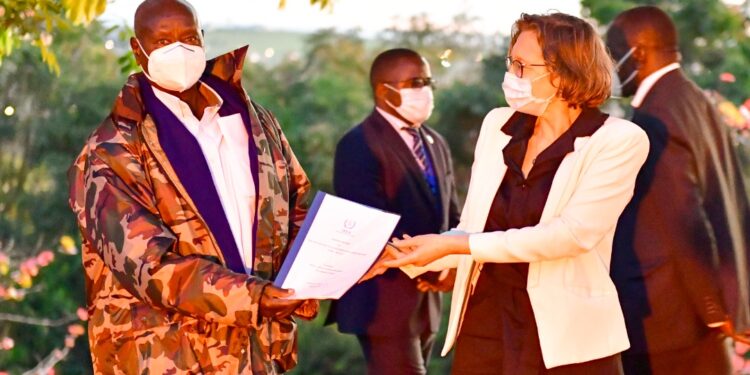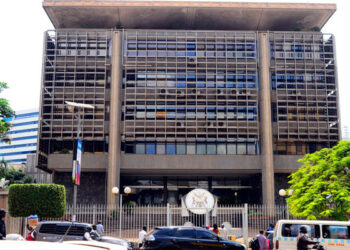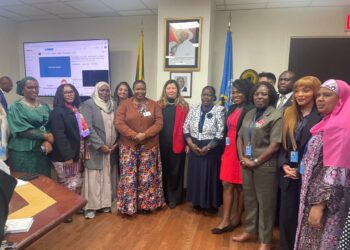Members of the International Atomic Energy Agency (IAEA) have cautioned the government of Uganda to ensure that it strengthens its plans to join the relevant international legal instruments and to develop an adequate legal framework to support its nuclear power programme.
The advisory note was made by Ms Aline des Cloizeaux, the Director, Division of Nuclear Power, in the Department of Nuclear Energy of the International Atomic Energy Agency (IAEA) on Monday evening while presenting the Nuclear power readiness report on Uganda to President Yoweri Museveni.
She noted that the Integrated Nuclear Infrastructure Review (INIR) mission evaluated the status of the development of the national infrastructure for nuclear power and identified areas that needed further action.
In the report, they suggested and recommended the Government of Uganda speed up the formation of its energy policy and its roadmap for the development of nuclear power. They also urged that Uganda should strengthen its plans to join the relevant international legal instruments and develop an adequate legal framework to support its nuclear power programme.
Other key issues included continuous assessments and plans for the development of the human resources necessary for the nuclear power programme. And the further analysis on the preparedness of the electrical grid, continuous work in the areas of siting, environmental protection, financing, and radiation protection.
“We commend Uganda for the cooperation throughout phase one and we have come up with recommendations for Uganda to start building and production of nuclear power. We in the agency are ready to offer all support such as training so that the project becomes a reality in the eyes of Ugandans,” Ms Aline des Cloizeaux said.
In response to their recommendations, President Museveni gave his commitment to the adoption of safe uses of nuclear including for power generation and medicinal uses amongst others.
“For us, we want that power for electricity and agriculture, not nuclear weapons. I’m glad that you are satisfied with what we are doing.”
Currently, there is significant progress under phase one towards the development of national infrastructure for nuclear power and some of the notable achievements include; Capacity building in the Ministry of Energy and Mineral Development and Atomic Energy Council to plan and manage the nuclear power project.
The Nuclear Power Plant (NPP) site has been identified and the acquisition of 30km2 of land to host 2000 MW nuclear power plant capacity, its auxiliary facilities, exclusion and controlled population zones is planned. Also the study on integrating nuclear power in the electricity generation capacity plan 2015-2040 is completed. The study recommended 2000MW of nuclear power starting in 2031, identified nuclear reactor technology options, nuclear fuel cycle options and, funding and financing options.
Awareness of nuclear energy has been created and an assessment of human resources was conducted and competencies required for key institutions were identified. In addition, the establishment of a Centre for Nuclear Science and Technology for nuclear education, training, research and development is being planned.
A study on the status of radioactive waste management in Uganda has been conducted and options for radioactive waste and spent fuel management identified. In the same way, the assessment of local industrial involvement has been conducted and goods and services required for the local supply of the first NPP were identified.
Phase 1; Integrated Nuclear Infrastructure Review (INIR) by the International Atomic Energy Agency (IAEA) was conducted in 2021 to conclude the pre-feasibility studies for the nuclear power programme.
Do you have a story in your community or an opinion to share with us: Email us at editorial@watchdoguganda.com













